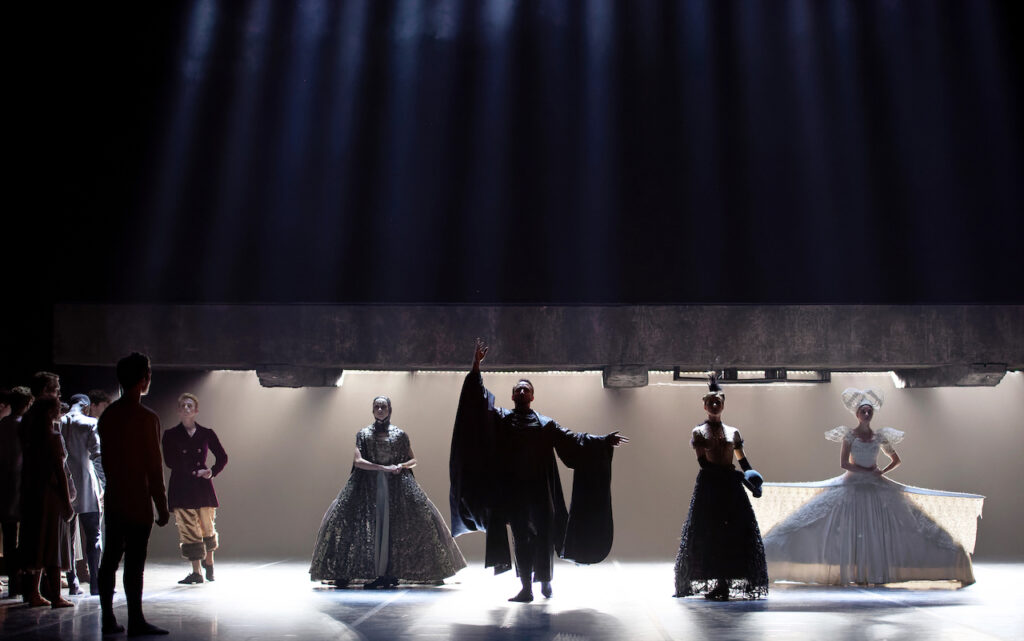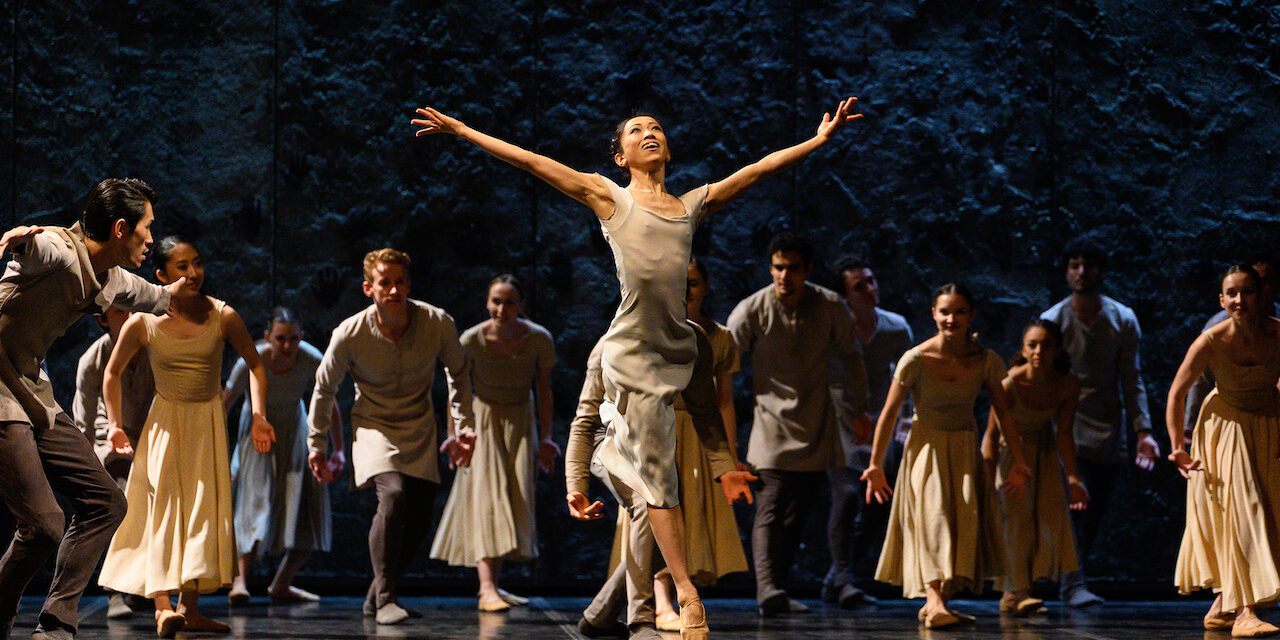
26 – 28 October
A few times in a lifetime all creative elements in a production can come together in such a way as to blow away any pre-conceived ideas one might have had, perhaps about ballet in particular. Akram Khan’s re-imagining of Giselle is one such moment in which he has found an opportunity to turn a much-loved traditional story of love, betrayal, forgiveness and redemption into an uncompromising parable for our times. Khan’s Giselle is an extraordinary collaboration between choreographer, dancers, composer, musicians, set and lighting designers, who have seized rare artistic freedom to unleash the best of their talents to thrill our senses.
Khan’s own story, born of Bangladeshi parents growing up in suburban Merton where he suffered frequent racist attacks, has undoubtedly fed into this re-telling – a sense of there being two worlds, two cultures divided by wealth and inequality, side by side in uneasy proximity. Here Giselle is re-imagined as one of the ‘Outcasts’, a migrant factory worker who has been thrown out of work by the closure of the garment factory in which she works. She and her colleagues find themselves locked out, looking up at a forbidding wall that separates them from the rich owners, the ‘Landlords’, within.
The bare bones architecture of the original libretto by Saint-Georges and Gautier is preserved. In the midst of this new dystopian tableau, Giselle falls for the disguised Albrecht, who, unknown to her, is already betrothed to the ‘princess’ Bathilde who resides on the other side of the wall. Vincenzo Lamagna’s imaginative and challenging score enriches the moving physical interpretation of their love for one another while allowing the frustration of the equally smitten Hilarion, danced with pulsating energy by Victor Prigent, to find expression.

As extreme workouts go, the first half alone would have to rank alongside the most arduous of athletic undertakings. Fernanda Oliveira as Giselle, delicate, lithe, graceful but also explosively animated, with a magisterial Aitor Arrieta as Albrecht, seethed with expressive longing and gentleness while they made the lifts seem effortless, weightless. Around them, the company at times stirred as automatons, in jerking mechanised movements, to then break apart running wildly across stage in silhouette as untamed animals in a migrating gallop. The pace never dropped, urged on by extraordinary percussive elements within the English National Ballet Philharmonic orchestra.

The soundscape was a memorable element throughout the performance, but perhaps most notably at the crucial juncture when the wall is summoned to turn. A mournful, repeating klaxon call instils a sense of dread as haute-coutured aristocrats saunter out amongst the less fortunate. They move at stately pace, backs stiff and straight, giving them a distinctly different physicality to the more organically moving Outcasts.
The scene leading to Giselle’s collapse is surely one of the most extraordinary of the night as the company enclose her in a circular bundle of bodies that heave up and down like a beating heart.
Act II, as in the original, follows Giselle’s life after death. Here Khan reverts to en pointe movement, as Myrtha, Queen of the Wilis, summons her to a new life as an avenging angel.
A single muted drum beat is enough to instil a sense of the ominous in Myrtle’s arrival, played with huge presence by Isabelle Brouwers, her army of Wilis shimmering across the stage on tip toe before attacking the ill-fated Hilarion who comes to Giselle’s graveside.
But perhaps the best has been left to last: the tortured Albrecht has also sought out Giselle’s grave. In the most poetic of pas de deux, accompanied by haunting viola and cello, he and Giselle once more connect under the disapproving eye of Myrtha, before Giselle commands her new queen to save his life before disappearing with her into the darkness.
There were many damp faces looking on at the finale and as the roars went up at the final curtain. Unmissable.
★★★★★ Simon Bishop, 27th October 2023


